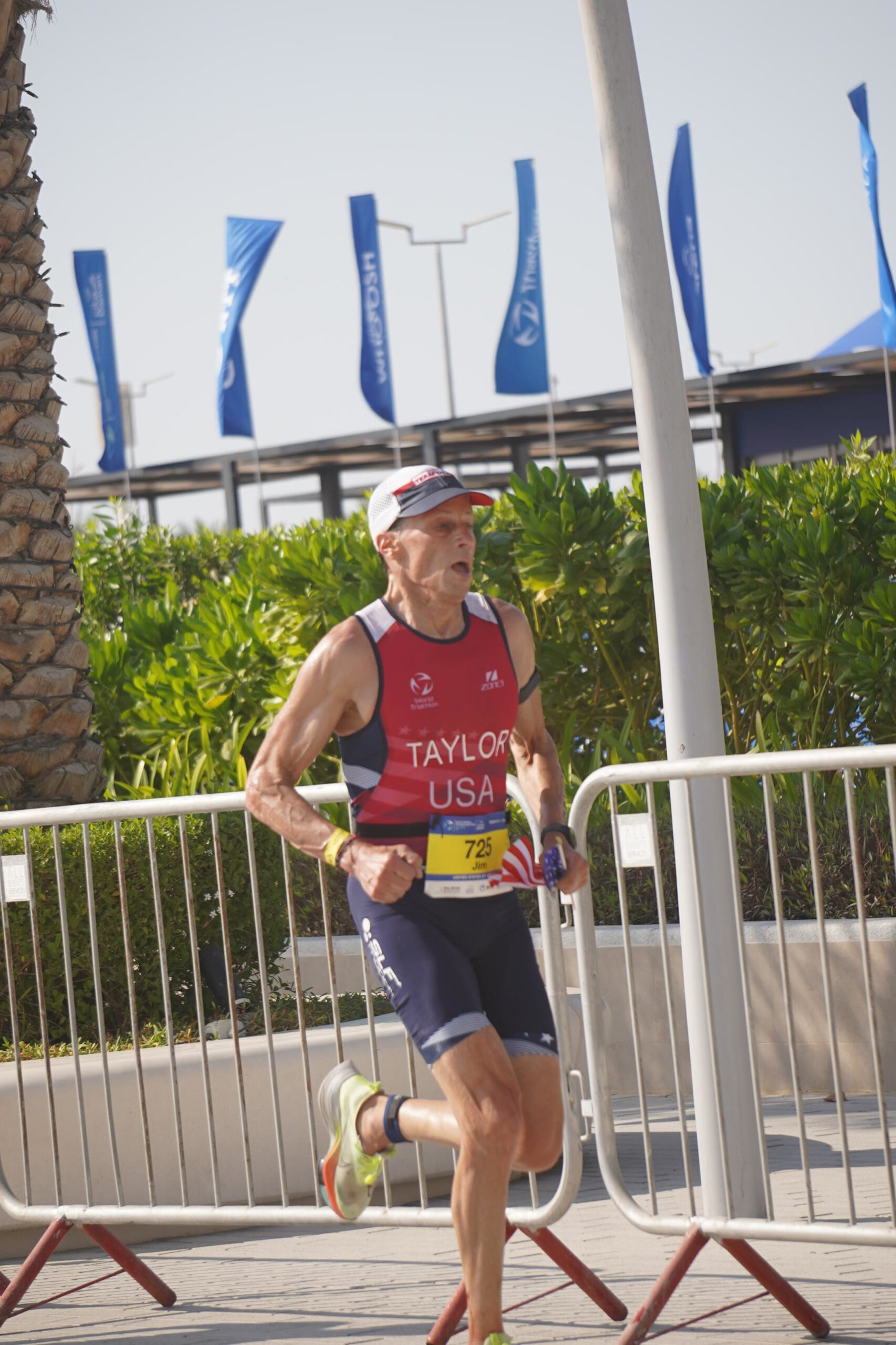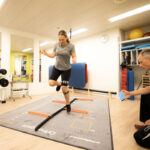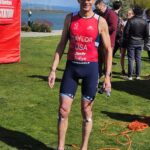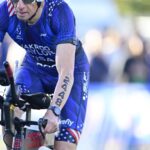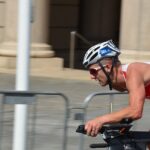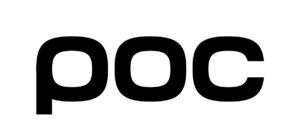The 2021-22 race season is now in our rearview mirror (mine just ended after Abu Dhabi a full seven months after it started). You’ve likely either put your swim, bike, and run gear away for a much needed rest or significantly dialed back your training through the new year when you’ll ramp things up in preparation for the 2023 season (I went with the latter approach because I’m jonesing to get back to training). Hopefully, you’re also devoting more time to your family and friends, as well as to your career, which you likely neglected to some degree for the sake of your triathlon life.
The last thing you want to think about is the race season just concluded. Yet, think of it you must! As the saying goes, “Those who don’t learn from history are doomed to repeat it.” It’s important to look back on last season with a critical eye, so you can then look forward to the 2022-23 race season with optimism, excitement, and, most importantly, lessons learned from the past season and a plan for next season.
Past Season Assessment
The first step in evaluating last season is to rate yourself in each of the following areas on a 1-10 scale (I’ve included my scores for those who are interested):
- Overall, rate your season in terms of achieving your goals: 1-really disappointing season; 10-exceptional season (Jim:10; I far exceeded anything I could have imagined).
- Your enjoyment of last season: 1-hated it; 10-I loved it (Jim: 10; super psyched start to finish).
- Physical development: 1-I got weaker since the previous season; 10-I got much stronger since the previous season (Jim: 7; because I came back from serious injuries sustained in a hit-and-run crash in Sept., 2021, so never got my fitness back fully).
- Technical development: 1-My swimming, biking and running went backwards; 10-I made huge improvements (Jim: 7; my swimming improved a ton).
- Tactical development: 1-My tactics went backwards; 10-My tactics improved a lot (Jim: 8; my transitions improved a ton and I’m confident in my running tactics, but I still need to learn how much I can push myself on the swim and bike).
- Mental development: 1-I was a mental wreck this past season; 10-I was mentally strong this past season (Jim: 10; I better give myself a 10 given what I do for a living!).
- Equipment: 1-My equipment and set-up are a mess; 10-My equipment is just right for me and my set-up is totally dialed in (Jim: 10; I felt really good about all of my tri-gear).
- Getting faster: 1-I got slower this season; 10-I got much faster this season (Jim: 6; I got my running speed back by the end of the season after finally getting healthy and pain free in June, but my swim and bike speed didn’t improve).
Mental Assessment
Given that my focus is on the mental side of our sport and the mind is the most neglected part of triathlon performance, I think it’s important for you to evaluate yourself mentally to help guide your mental training during the 2022-23 prep period (see my ratings here too):
- Motivation: 1-none at all; 10-incredibly driven (Jim: 12!)
- Confidence: 1-rock bottom; 10: high as a kite (Jim: 8; still need more confidence swimming and biking)
- Intensity: 1-too relaxed in races; 10-way too nervous in races (Jim: 5; like Goldilocks, just right with some slight variation up and down depending on the race)
- Focus: 1-totally distracted; 10: laser-beam focused (Jim:9; by the end of the season, I figured out what I needed to focus on to push myself consistently start to finish)
- Mental imagery: 1-I never use it; 10-I use it on race day and outside of triathlon consistently (Jim: 8; I did a ton of imagery in the week leading up to races and as part of my pre-race routine on race day; so valuable)
- Routines: 1-no routines in training or on race day; 10-very structured routines in training and on race day (Jim: 8; I have my race-day routine totally dialed in, but I don’t have a routine I use before training)
- Consistency: 1-huge ups and downs in my performances; 10-small ups and downs, but generally high level of performances (Jim: 9; I only had one race this year that I was disappointed with, and it was expected because it was my first Olympic distance since my bike crash)
- Bring it: 1-I raced tentatively all the time; 10-I went for it every race (Jim: 7; I’m still learning how fast I can push on the swim and bike without blowing up on the run)
- Investment: 1-I have no investment in my triathlon; 10-I am way too invested in triathlon (Jim: 8; I am heavily invested in our sport, but it hasn’t gotten unhealthy)
- Perfectionism: 1-I don’t need to be perfect; 10-I have to be perfect, or I beat myself up (Jim: 4: I’m a perfectionist in recovery, so I’m not happy if I don’t perform to my capabilities, but I get over it quickly)
- Fear of failure: 1-I don’t like to fail, but I don’t fear it; 10-I have a huge fear of failure and avoid failure at all costs (Jim: 2; if I get beaten by better guys, I don’t like it, but it doesn’t ruin my day)
- Expectations/pressure: 1-On race day, I just try to perform my best and have fun; 10-I place immense expectations on myself that weigh me down on race day (Jim: 4; I’m still new to elite triathlon, so I haven’t known what I was capable of, but with my successes this season, I’m going to have to be careful with my expectations in 2023, particularly given that I’m aging up)
Questions to Ask Looking Toward Next Season
- What are your goals for the 2023 triathlon season?
- Outcome goals (e.g., new PR at a local race, ranking, qualify for Nationals or Worlds). (Jim: win a national title and podium or better at Worlds)
- Process goals (e.g., what you want to get better at)? (Jim: greater overall strength, improve my swim speed, increase my power on the bike)
- What strengths do you bring forward from this past season that will propel you into next season? (Jim: passion, greater confidence, more experience, clearer focus, fast running)
- What weaknesses have you identified that you need to improve on? (Jim: swimming and biking that isn’t competitive with my peers, lack of experience as a swimmer, subpar power on the bike)
- What has worked for you that you absolutely want to keep doing? (Jim: being coached by Greg Rhodes, training and race management, effort, my transitions, nutrition and hydration, lots of sleep, run training)
- What didn’t work for you that you absolutely must not repeat in 2023? (Jim: nothing really, so much worked well for me in 2022; oh, one thing, don’t get hit by a car again!)
- What new things can you bring to your training to better prepare you for next season? (Jim: more strength training, changes in my swim and bike training to make me faster)
I encourage you to have your coach (if you have one) complete the above assessments and questions to ensure that your perceptions are consistent with theirs and are based in reality. Assuming you find general agreement in your respective responses, you can then sit down with your coach and use this information to create a comprehensive off-season training program the goal of which is to set yourself up for a successful 2023 triathlon season in which you swim, bike, and run consistently fast, have a ton of fun, and achieve your 2023 triathlon goals.

